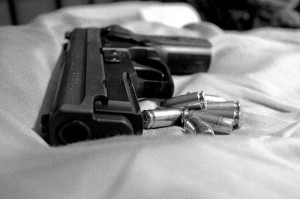 Picture this scene: you’re driving home from work, tired from the day, and suddenly, out of nowhere, a bullet rips through your windshield.
Picture this scene: you’re driving home from work, tired from the day, and suddenly, out of nowhere, a bullet rips through your windshield.
In 2002, people in the Washington, D.C. area suffered through this tragedy, with ten victims killed by the sniper. According to a New York Times article, the surviving families of eight victims sued the gun manufacturer of the rifle used, winning $2.5 million in the case.
Gun lobbyists obviously didn’t like this result and went to work on Congress. In 2005, Congress passed the Protection of Lawful Commerce in Arms Act (PLCAA), which severely reduced the legal liability of gun manufacturers, distributors, and dealers for reckless acts that send guns to the black market.
As an experienced gunshot injury attorney, I hear questions all the time about the PLCAA. I’d like to take this chance to explain what, exactly, the act does.
According to the CRS Report for Congress, the PLCAA:
“…generally shields licensed manufacturers, dealers, and sellers of firearms or ammunition, as well as trade associations, from any civil action ‘resulting from the criminal or unlawful misuse’ of a firearm or ammunition, but lists six exceptions where civil suit may be maintained.”
The act was first introduced in response to litigation by municipalities and victims of shooting incidents against federally licensed firearm dealers and manufacturers. In some of these cases, the manufacturers or dealers were located outside the state where the attack or injuries occurred.
After the act was passed, most lawsuits brought forth against gun manufacturers and dealers have been dismissed, except the ones that qualify under the law’s exceptions.

